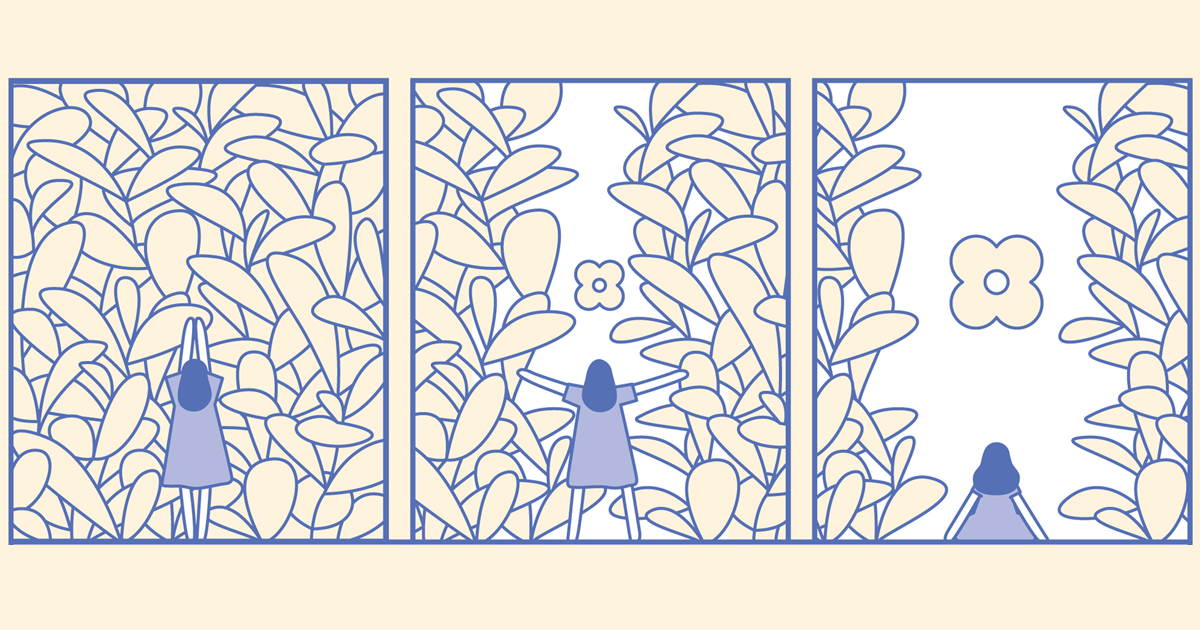The Book Festival's programme of events for prisoners, as well as their families, expanded again in 2019
Coinciding with the Book Festival in August, we held a series of events in Scotland’s prisons, including some which brought children’s authors into visitor rooms so prisoners could share the experience of a Book Festival event with their families. Project Manager Jess Orr describes this year's work below.

It was day one of the Edinburgh International Book Festival’s prison programme and I was sitting in a small classroom in the learning centre of HMP Shotts, joined in a close circle by members of the prison’s monthly book group, its dedicated facilitator Kirstin Anderson, and - for one day only – by Swiss author Michelle Steinbeck and her English translator Jen Calleja. Michelle’s fascinating novella, My Father Was a Man on Land and a Whale in the Water, was not one I had expected this group to choose for their monthly read, given its rather abstract narration of a woman who travels around with an unknown child in her suitcase. Needless to say, I was delighted when Kirstin passed on the group’s request for Michelle to visit, and even more thrilled when Jen was able to come along too.
To our surprise as we entered the room, the group sat on the edge of their seats, ready to ask a hundred burning questions. Some of them had been attending this group for several years and the discussion that followed ranged from Michelle’s surrealist style to the strategies used by Jen to translate this linguistically challenging book into English. One group member looked sheepishly at his trainers, embarrassed that he hadn’t managed to get the book finished in time. Later he exclaimed: ‘I like this kind of book, it lets me put my own ideas and characters into it so that they are free to roam, and I can think about anything I want’. As the conversation turned to the burdens of parenting - a central theme of the book - someone else said: ‘I read that passage and I thought – that’s life isn’t it? That’s what we’re all battling against every day’.
And so began an exhilarating and myth-busting ten days on the road, as I travelled to nine different prisons around Scotland with some of the most talented and diverse authors, illustrators and translators, plucked from the Author’s Yurt in Charlotte Square Gardens. Some of them were well versed in these kinds of visits, such as Scottish crime writer Doug Johnstone, who immediately launched into an enthusiastic talk to an attentive crowd in Kilmarnock. London-based Anthony Anaxagorou meanwhile, wowed a large group of men in Addiewell with polemical performances about poetry, politics and (controversially) private prisons. Others quickly overcame their nerves about being in this new kind of environment to start meaningful conversations, such as YA author William Sutcliffe, who turned the tables on young offenders in Polmont to find out what life in prison is actually like.
Across the board, these writers spoke energetically about what ignited their passion for books: Matt Wesolowski, for example, who captivated not one but three groups of men in Barlinnie, Low Moss and Edinburgh with his own miraculous transformation from reluctant reader to published author. His provocation that boys need better role models in fiction was met with a chorus of suggestions from the group about what would have encouraged them to read more at school. ‘He treated us like people not prisoners’ one attendee said afterwards, and ‘he helped me to “escape” the prison of my mind’. Down the hallway at HMP Edinburgh, Kerry Hudson encountered a vibrant group of women, who were soon engrossed in her account of growing up in poverty as captured in her astonishing memoir, Lowborn. It wasn’t long before a cacophony of voices filled the room fighting to be heard, as the group responded to Kerry’s open and honest approach with their own stories. When asked to write these down, you could hear a pin drop.
In Perth, traveller and collector of stories Matt Hopwood dug even deeper as he spoke with groups about the shared human need to connect, to tell stories and have them heard, to nurture each other as well as to be nurtured. Once again, the openness and integrity of the author was infectious, and before long the men were sharing their own stories about building new communities within four walls, about survived suicide attempts, and about the newspaper that’s passed from one cell to another every week, until it has been read from cover to cover, its crossword complete. Two days later, I was back in Perth with children’s illustrator and author Gary Northfield, who entertained visiting families with his comical drawings of Julius Zebra, and I watched as families of four squeezed onto two and a half seats to get as close as possible to each other during their limited time together. Then there was Eunice Olumide, supermodel and campaigner sprung from Wester Hailes, who mesmerised women at Cornton Vale with anecdotes from her new book How to get into Fashion. ‘You have so much to offer that is unique and different because of the experiences you’ve had’, she reminded them, ‘and some of the industries I’ve worked for are looking for this’. This group, many of them keen sewers themselves, were soon inviting Eunice back to run a dress-making workshop.
What really stood out to me throughout the visits was that these were book festival events through and through, and not just because of the pop-up banner which I proudly erected at each location (and which almost didn’t make it through security on more than one occasion). There were moments when I could have blinked and been back in a darkened auditorium in Charlotte Square Gardens, listening to the simple and powerful exchange that takes place between an author and a reader. The central provocation of this year’s festival ‘we need new stories’ was reflected in each and every personal account told, constantly challenging my preconceptions and making it feel as though the usual routines of prison life had been temporarily suspended. Perhaps even more so than in the outside world, this was a place where reading and writing became not just pastimes but lifelines, modes of survival during the darkest of days, and beacons of hope which offered a renewed sense of community.
Share this Post
